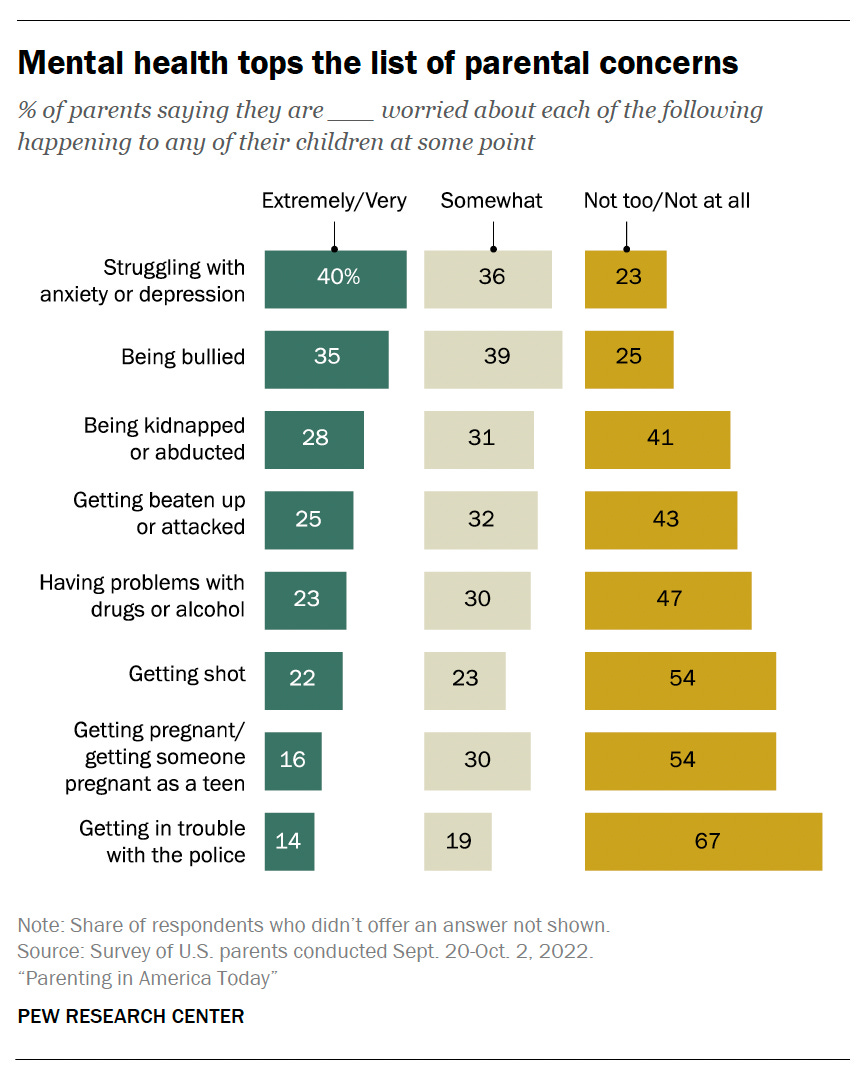What I'm reading this month
Your two-minute research roundup
Welcome to Techno Sapiens! Subscribe to join thousands of other readers and get research-backed tips for living and parenting in the digital age.
So, if you’re anything like me, you spend hours each week combing through academic psychology journals, searching the literature for new data on parenting, and reading dozens of PDFs brimming with statistics on technology use and mental health.
Oh, what’s that? That’s just me?
Right.
Well, then, let’s try something new. I’ll do the searching, scanning, and reading. Then, I’ll summarize for you—in two minutes or less—three studies I read recently that caught my interest. If you find it useful, we’ll start doing this regularly (so please let me know what you think!)
Let’s get to it!
1. What’s it like to be a parent today?
Pew Research Center. In a nationally-representative survey, most parents (62%) say being a parent has been at least somewhat harder than they expected. When asked about their concerns for their children, 76% say they’re at least somewhat worried that their child will struggle with depression or anxiety.
My take: Parenting is hard! Glad I’m not the only one worrying about these things.
2. Do digital detoxes work?
Mobile Media & Communication. Digital detoxes are “timeouts from using electronic devices (e.g., smartphones), either completely or for specific subsets of smartphone use.” This review of 21 studies is inconclusive—some studies show benefits, some do not. But none of the studies involved adolescents, and it’s possible that “detoxing” from certain aspects of device use (e.g., social media, email) is more effective (and feasible) than quitting devices altogether.
My take: We need better research on this. In the meantime, I’ll still be taking occasional tech vacations (and don’t you dare try to stop me).
3. Can we learn to be better parents?
Journal of Applied Dev Psych. How to Talk so Kids will Listen & Listen so Kids will Talk is a seven-session, group parenting program (it’s also a popular book, based on the same principles). The program emphasizes three parenting skills:
Autonomy support, i.e., giving children choices, explaining rationale for your decisions, and providing empathy
Affiliation, i.e., creating warmth and connection
Structure, i.e., setting consistent limits and boundaries.
This is the first RCT to evaluate the HTTSKWL&LSKWT program—which, probably, could have picked a shorter name. 293 elementary school parents were randomized to the program, or a waitlist. Those in the program increased in autonomy support, and for parents who were previously struggling with affiliation or structure, the program helped them improve.
My take: Parenting is a skill, and learning a few simple strategies can make it a little easier. Will finally be purchasing the book (if I can ever remember the name).
A quick survey
What did you think of our first two-minute research roundup? I want to hear from you! Thanks!




HTT so little kids will listen has been as close to a parenting bible as I've got. Super useful!
You know I love this overview of the most recent research! I love the How to Talk books! I just interviewed the authors of the most recent How to Talk book for my Substack and they have incredible insight!